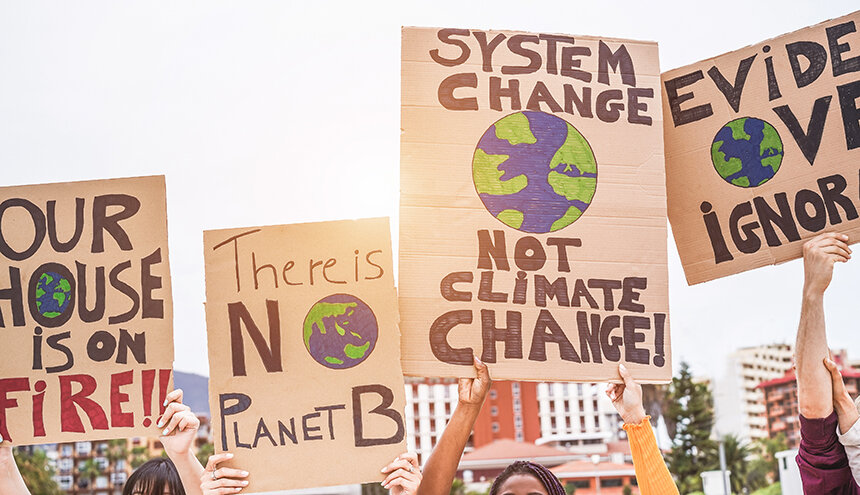Public Concern Aired, But Feds Control LNG Project
November 18, 2017
PROVIDENCE — At the first of two public hearings for the liquefied natural gas (LNG) facility proposed for the city’s industrial waterfront, opponents offered a number of reasons why the project shouldn’t be built. The Coastal Resources Management Council (CRMC) said it can’t consider most of them.
As explained by CRMC executive director Grover Fugate at the Nov. 14 meeting, federal rules designed to foster natural gas pipelines and infrastructure preempt state regulations. Thus, state agencies such as CRMC are prevented from considering safety, health, need, location and even climate change for projects like the proposed Port of Providence LNG facility. Basically, the Federal Energy Regulatory Commission (FERC) calls the shots.
“We are very limited in terms of what we can and cannot review in this project, unfortunately,” Fugate said.
He noted that for several months CRMC sought a ruling from the National Oceanic and Atmospheric Administration (NOAA) as to whether climate change could be considered in the decision, but was ultimately denied. Even the state’s setback wetland rule doesn’t apply.
“It is limited to the coastal effects and only the coastal effects that we have enforceable policies for,” Fugate said. “Many aspects under our typical regulations have been preempted through the FERC process.”
CRMC can only address the coastal impacts caused by operations at the 1.8-acre lot, according to Fugate. The massive, 43-year-old gas storage tank that sits next to the site and will provide fuel for the proposed project was off limits for consideration.
Despite the limitations, many of the 20 or so opponents spoke of the facility’s health and safety risks to the South Providence neighborhood and the state. Several noted that carbon dioxide and methane emissions over the project’s 30-year life will hinder plans to address climate change.
Wassa Bagayako of the Rhode Island Student Climate Coalition said the project creates a dangerous situation, with the 175-foot-tall, 2-billion-cubic-foot LNG storage tank at risk of leaking or exploding. She said Rhode Island’s primary medical hub and South Providence would suffer from increased pollution and chemical exposure — all of which perpetuates the ongoing environmental racism in the area’s predominantly low-income and minority neighborhoods.
“To continue with the development of the proposed facility betrays our obligations to the environment and our people,” Bagayako said. “Rhode Island as a whole deserves a just transition toward cleaner climate resiliency.”
Other opponents noted that the project is being built within a flood zone that is susceptible to sea-level rise and storm damage.
Ellen Tuzzolo, a resident of the nearby Washington Park neighborhood, said climate risks exist now.
“It’s not about five or 10 or 20 years from now, its about right now,” she said. “Even though it’s not on the radar, there’s already a storm on its way. Storm surge, heavy rains, wind and an LNG facility that is being proposed to basically be built in the water.”
Justice Gaines of Direct Action for Rights and Equality (DARE) claimed that National Grid has a record of accidents with its pipelines and power lines.
“If you all are supposed to be protecting our coastlines, no project like this can go forward,” he said.
Anthony LaRusso, a National Grid engineer and project manager for the LNG project, explained that the facility is needed to meet potential supply shortages, especially during periods of peak demand in the winter. That demand is proven by the fact that utility companies, which LaRusso referred to as “customers,” have agreed to buy all of the LNG produced at the new facility.
Nick Katkevich of The FANG Collective said National Grid is using a purchasing scheme to create artificial shortages and using that as justification for building new projects. He also called out National Grid for saying it is building the project for natural gas for “customers,” while failing to say that those utilities such as Boston Gas and Narragansett Electric are subsidiary companies.
“They are not partners, they are another part of their company under a different name. When they say they have customers for National Grid’s gas that just means they are selling it to themselves and that’s the scheme,” Katkevich said. “They care about building this as quickly as possible so they can profit off of it themselves.”
Engineers for National Grid said the project will help reduce runoff into the Providence River and it will be protected by a 21-foot stone barrier, known as riprap. They height is well above sea-level rise projections, they said.
Project supporters from the Greater Providence Chamber of Commerce, the Northern Rhode Island Chamber of Commerce, and the Rhode Island Building and Construction Trades Council also attended the Nov. 14 public hearing.
Paul LaRoche, of the Greater Providence Chamber of Commerce, claimed the project will help the economy and create 155 jobs. “We are behind it all the way,” he said.
The meeting ended at 9 p.m., after four hours of presentations and public testimony. Anyone who signed up but didn’t get a chance to speak will be able to do so at the Nov. 28 hearing.
At the conclusion of that hearing, CRMC may agree or deny the consent certification. The decision is then filed with National Grid, NOAA and FERC. The Rhode Island Department of Environmental Management (DEM) must also issue an air pollution permit for the project.
FERC will consider CRMC’s and DEM’s decisions, but the federal agency has full authority to approve or deny the $180 million proposal, because of the Natural Gas Act of 1938.
Categories
Join the Discussion
View CommentsRecent Comments
Leave a Reply
Related Stories
Your support keeps our reporters on the environmental beat.
Reader support is at the core of our nonprofit news model. Together, we can keep the environment in the headlines.
We use cookies to improve your experience and deliver personalized content. View Cookie Settings




What happened at the follow up hearing scheduled for yesterday – 28 November?
Here’s the followup story from the Nov. 28 hearing. https://www.ecori.org/renewable-energy/2017/11/30/opponents-bring-passion-scrutiny-to-lng-hearing